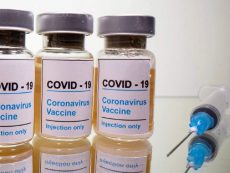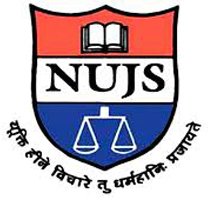Topical Highlight

Image from here
Compulsory License for Covid Drugs on the Table, Says Delhi High Court
In this post, Swaraj discusses the recent Delhi High Court order in the case of Rakesh Malhotra v. Govt of National Capital Territory of India and Others, in light of the worsening pandemic situation in India. The Court hauled up the government on various issues regarding the response to the pandemic so far, concerning oxygen use, ramping up of testing facilities, shortage of drugs and black market selling of them, bed shortages, wastage of 44 lakh vaccines(!), etc. Swaraj notes that crucially, the order directed the Central Government to ramp up production of medicines for treatment of Covid, noting the various sections of the Patent Act which allow compulsory licence / governmental use of such inventions. Quoting from the order, he highlighted the Court’s salient observations, “the best course would be to encourage the existing manufacturers to ramp up their production on a war footing. They should also be encouraged to grant voluntary licenses to other entities to manufacture the requisite drugs. However, if such efforts do not fructify soon enough, the Government/ Controller should not hesitate to invoke their jurisdiction and powers under the aforesaid provisions of the Patents Act, since the lives of thousands of people are being lost each day in the country due to COVID.”
Thematic Highlight

Image from here
A Recipe for Disaster: Export Bans, TRIPS Waiver and Hyper Nationalism
In this detailed post, Praharsh discusses the US’ stance of sharing Astrazeneca doses with Mexico and Canada while simultaneously blocking the export of necessary raw materials to India, hindering the latter’s vaccine output. He locates this within the larger context of export bans on vaccine raw materials and its implications on vaccine supply chains along with the potential benefits (and shortcomings) of a TRIPS waiver. He notes that the GATT restricts any prohibition on exports generally. However, there are exceptions to this general prohibition and Praharsh highlights that a theoretical argument can be made justifying the US’s export bans. He notes, as has been pointed out by other commentators before, that it is tough to reverse engineer and make complicated biologics like the COVID-19 vaccine unless undisclosed information (knowhow) and necessary technology to manufacture such vaccines are shared with the manufacturers. A TRIPS waiver can do only so much about it. He offers some suggestions such as extending support to initiatives targeted to improve the technology transfer and access to knowhow like the new COVID-19 mRNA vaccine technology transfer hub, and giving a new life to CTAP as well as emphasising the negotiations aimed at strengthening local production of medicines, especially with the support of government funding. One of his more ambitious recommendations concerned amending the WTO agreements to completely restrict export bans during pressing times. He concludes that what seems like an immediate solution is India’s decision to waive custom duties to improve imports of vaccines and its raw materials for three months. However, he notes that this measure will be futile if the exporting country decides to impose its own version of the export ban on these commodities.
Other Posts
Image from here
Infographic on ‘Permissible Uses of Copyrighted Books in India’ on World Book and Copyright Day
On the occasion of the World Book and Copyright Day, we shared an infographic by Pankhuri Agarwal on all our social media pages highlighting the ‘Permissible Uses of Copyrighted Books in India’ as per fair use of copyrighted books provided for under Section 52 of India’s Copyright Act. We shared this in the hopes of making users more confident of exercising their user rights relating to books without hesitation or reluctance. The Infographic in Word Version is available here.
 Seeing It Through: The Journey of the Dean of UNH Franklin Pierce School of Law
Seeing It Through: The Journey of the Dean of UNH Franklin Pierce School of Law
We also brought a guest post to our readers by UNH Franklin Pierce School of Law, sharing a glimpse of the educational and professional journey of its dean Megan Carpenter and what she views as the future of UNH Franklin Pierce’s law programs. Dean Megan Carpenter has relished the chance to build on UNH Franklin Pierce’s innovative programs in IP law and more about her insightful and inspiring journey can be found in the post.
 NUJS Webinar on ‘IPR& SMEs (Special Focus on Agriculture & Food Sector): Strengthening Bonds in Prime Times’ (April 25)
NUJS Webinar on ‘IPR& SMEs (Special Focus on Agriculture & Food Sector): Strengthening Bonds in Prime Times’ (April 25)
We informed our readers about a webinar on ‘IPR & SMEs (Special Focus on Agriculture & Food Sector): Strengthening Bonds in Prime Times’ organised by the DPIIT IPR Chair, on 25th April, 2021. When economic recovery from the fallout of COVID-19 is a priority, World IP Day 2021 shines a light on how SMEs can use their IP assets to build stronger, more competitive, and resilient businesses and create jobs. Further details regarding the event were provided in the announcement in the post.
Decisions from Indian Courts
- The Kerala High Court in Kunhi Muhammed Etayattil v. Assistant Registrar of Companies, held that the Registrar of Companies was not justified in declining the incorporation of “Reef Wellness & Excellence LLP” on the ground that the proposed name includes the word ‘Reef’, which is a trademark under class 5.
The Court held that this amounted to a rejection without application of mind wherein the government officials blindly depended on the Central Registration System of Ministry of Corporate Affairs. [April 24, 2021] - The Delhi High Court in Sagar Ratna Restaurants Pvt. Ltd. v. D S Foods & Ors. set aside the impugned order holding that the respondents could not be allowed to take inconsistent positions as per their convenience regarding the arbitrability of a dispute arising out of the franchise agreement wherein they were granted a license by the petitioner, who is a registered owner of the trade mark Sagar Ratna, to use their mark “SAGAR RATNA”. [April 22, 2021]
- The Bombay High Court in Prateek Chandragupt Goyal v. State of Maharashtra quashed an FIR lodged against Newslaundry journalist, Prateek Goyal by the Sakal Media Group for allegedly committing offences under the Trademarks Act, holding that the mere use of the registered trade mark in articles authored by the petitioner did not amount to false application of the trade mark. [April 20, 2021]
- The Telangana High Court in G.S.K. Life Sciences Pvt v. The Union of India held that the 2nd respondent rightly passed orders directing the petitioner to change their name by deleting the word ‘GSK’ from it since it is similar to the 3rd respondent’s name, and 3rd respondent is widely known as GSK for a long time even prior to the incorporation of the petitioner-company. [April 20, 2021]
- The Delhi High Court in Mankind Pharma Ltd. v. Novakind Bio Sciences Pvt. Ltd., held that since the suffix “KIND” was common to all the plaintiff’s products, it had attained distinctiveness within the meaning of Section 17(2) (b) and Section 32 of the Trademarks Act, 1999. Thus, defendant’s use of it for its pharmaceutical products was restrained till the next date of hearing as it could confuse or deceive the public into believing the products of the defendants to be those of the plaintiff. Notice was served on the defendants and they were directed to file a response to the application within 2 weeks of the date of the order. [April 20, 2021]
- The Delhi High Court in Best Power Equipments India Pvt. Ltd. v. North East Computer Traders, refused to grant an ad interim injunction against the defendants on an allegation concerning disparagement of the plaintiff’s trade mark. The Court held that the impugned private WhatsApp messages merely stated that as there were complaints against some of the UPSs supplied by the plaintiff, traders were required to be cautious while dealing with the plaintiff. Thus, the Court concluded that it would not be correct at least at an ad interim stage to restrain the defendants from exchanging WhatsApp messages amongst themselves which may, according to the plaintiff, disparage the plaintiff or its products. [April 20, 2021]
- The Delhi High Court refused to grant an interim injunction on a plea by Bengaluru-based payments firm PhonePe against rival BharatPe on using the ‘Pe’ suffix, holding that there was insufficient evidence to conclusively determine that the ‘Pe’ suffix would be “indelibly associated” by the public with PhonePe’s services. [April 15, 2021]
- The Delhi High Court issued notice on a petition by late Bollywood actor, Sushant Singh Rajput’s father, seeking a ban on the release of any movie on the actor’s life. Sushant’s father argued that any use/misuse of Sushant’s name/image/caricature/ lifestyle or information from his personal life amounts to infringement of his “personality right” amounting to passing off.
News from India
- Seven companies producing Remdesivir in India voluntarily slashed prices by an average of 39% as the use of the drug shot up due to a surge in Covid-19 infections, upon government intervention.
- The Congress Party’s 14-point statement regarding the government’s ‘grave errors’ in Covid-19 management emphasised the failure of the government to resort to compulsory licensing to produce the two approved vaccines in other pharma manufacturing facilities in India.
- An article in the Times of India reported that during a meeting of the TRIPS Council, while discussing India and South Africa’s joint proposal for flexibility in the patent regime to facilitate access to vaccines in developing countries, the Indian delegation emphasised that the existing approach of voluntary licencing could only deliver vaccines to 4% of the global population.
- On World Intellectual Property Day 2021, the Indian Performing Right Society Limited launched the ‘IPRS for Fair Music’ campaign to boost a healthy ecosystem for music in India.
Other News from Around the World
- An Australian scientist who claimed to have created Bitcoin was backed by London’s High Court to sue the mystery owners of the bitcoin.org website for allegedly infringing his copyright over the cryptocurrency.
- An article in the Livemint by Lalit K Jha reported that the Biden administration experienced immense pressure from various quarters, including the powerful US Chambers of Commerce, lawmakers and eminent Indian-Americans, to export AstraZeneca and other Covid-19 vaccines along with several life-saving medical supplies to India.
- An article in the Economic Times reported that in an effort to re-establish “authority” over the usage of her likeness, model, actress and writer Emily Ratajkowski, is minting a nonfungible token. Since an NFT is less about the image itself and more about ownership over a digital file, Ratajkowski realized the medium could be an effective tool to make a statement about ownership — by appropriating the appropriation of her photos.